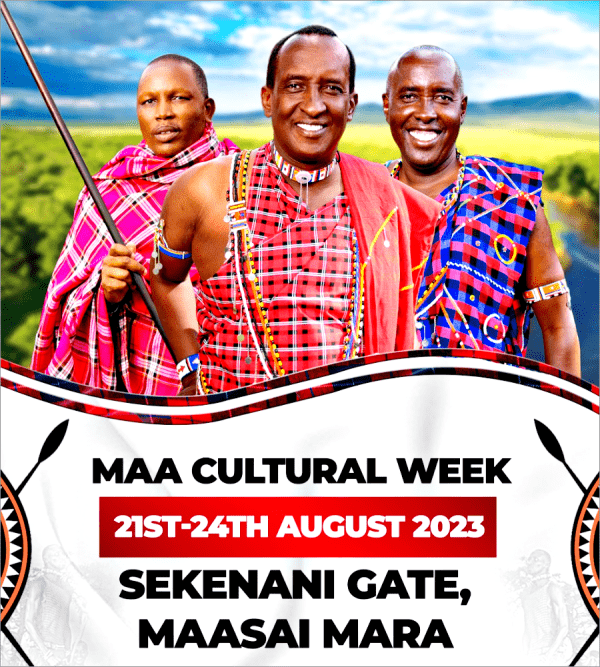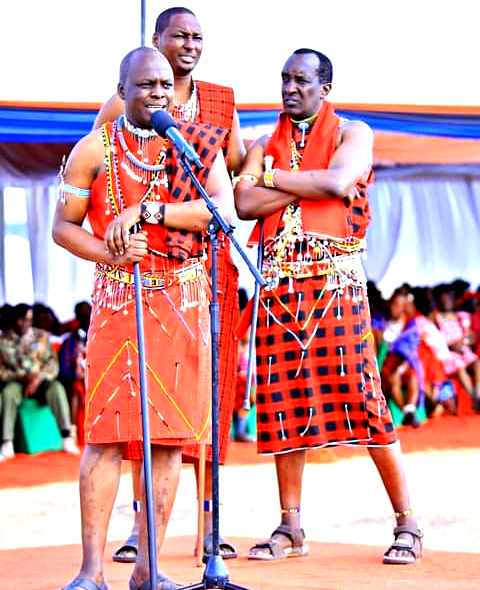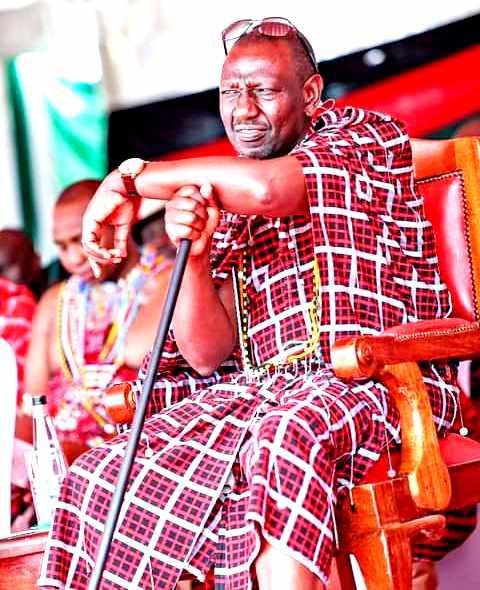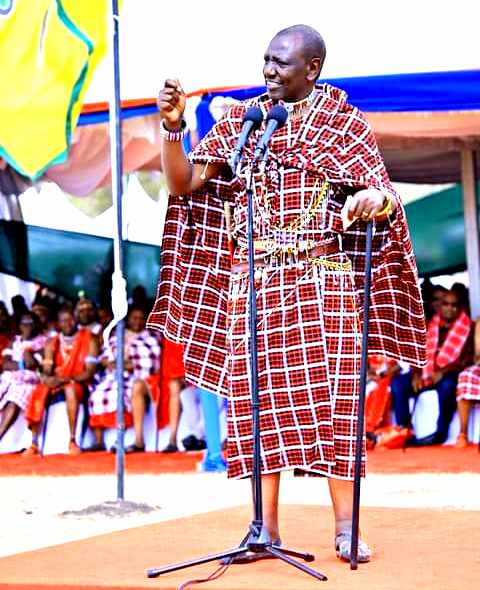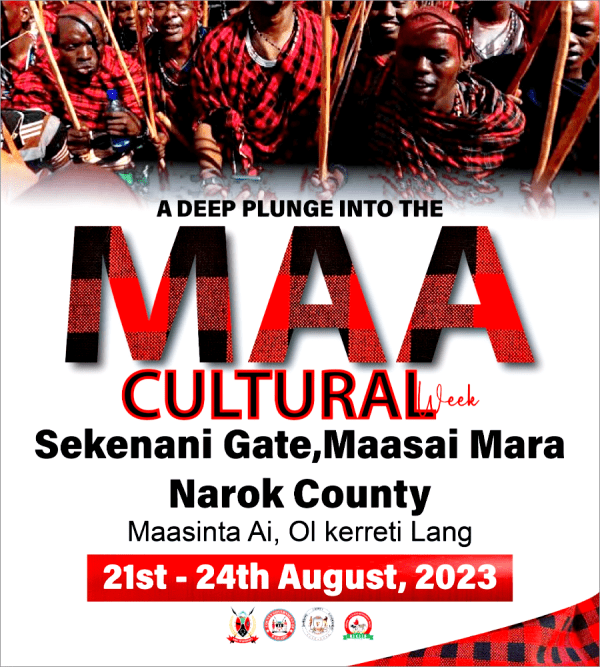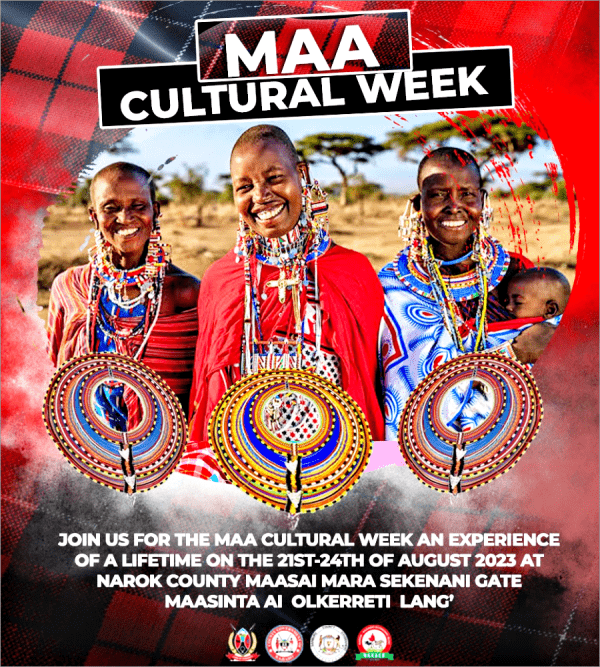Preamble
The Festival seeks to fulfill the aspiration of the National Policy on Culture and Heritage as informed by Article 11 of the Constitution of Kenya that recognizes culture as the foundation of the nation and as cumulative civilization of the people of Kenya.
Objectives of this Festival
- 1. Provision of an annual, week-long space for cultural expressions (Cultural extravaganza)
- 2.Enjoyment of Maa-speaking group’s cultural expressions
- 3.Provide and facilitate public creation, production, and exhibition space(s)
- 4.Raise awareness on the rich and diverse Maa-speaking groups’ cultural heritage.
- 5.Promote Intra and Inter-iloshon, Intercommunity cultural dialogues and exchange.
- 6.Provide spaces for Networking and partnerships within and across, communities, Counties and international actors
- 7.Contribute to cultural exchange programmes and social cohesion in the Country.
- 8.Raise awareness on the importance of culture in development & trigger interest for improved allocation of resources for promotion of culture.
- 9.Enhanced collaboration mechanisms between the national and county governments
- 10.Provide job opportunities.
1. Background
The constitution of Kenya recognizes culture as the foundation of the Nation and as the cumulative civilization of the Kenyan people and Nation. Article 2 in the Kenya constitution aims at ensuring the fullest possible expression on culture and heritage in all their facets including equal access for all cultures to scientific and technological knowledge, including digital forms.
The Festival seeks to fulfill the aspiration of the National Policy on Culture and Heritage as informed by Article 11 of the Constitution of Kenya that recognizes culture as the foundation of the nation and as cumulative civilization of the people of Kenya.
The policy recognizes the diversity of the language of the people of Kenya and aims to protect, preserve and promote the indigenous languages of Kenya and encourages every person to use, join and maintain cultural and linguistic associations.
Cultural and creative industries play a significant role in the socio-economic development of a country; the activities in this sector contribute to social cohesion, foreign investment, tourism, employment, and income generation.
Kenya’s Vision 2030 recognizes the need to celebrate diversity, and the need to build a strong and cohesive national character. It recognizes the importance of innovation in creation of new opportunities for the youth and women under which the cultural and creative industries have immense opportunity to contribute. Among Vision 2030 main flagship projects is development of an international arts and cultural centre for promotion of youth talents and for dialogue of cultures.
Kenya is a party to the 2005 Convention on the Protection and Promotion of the Diversity of Cultural Expressions. The convention encourages parties to adopt policies and measures which promote the full participation of its citizen in the process of creation, production, dissemination and distribution and also encourage states to provide access to their own cultural expressions.
Kenya participated actively in formulation of the east African community law on promotion of the creative and cultural industries within the East African Community, which seeks to establish legal and institutional framework for promotion of culture within the region. The proposed law establishes a regional culture and arts council that will draw members from within the creative and cultural entrepreneurs from the East African Community region.
Kenya has been an active member of the International Federation for Art Councils and Culture Agencies (IFACCA) seeking to leverage resources and to establish and strengthen networks with art and culture organizations. The main feature of the membership to IFACCA is participation at the bi annual international culture and arts summit that brings together culture policy makers and leaders from across the world to discuss culture and policies,
2. Trends in Community Cultural Festivals in Kenya
A Festival is a public celebration that conveys, through a display of series of activities, certain meanings to participants and spectators. Festivals therefore have power not only to bring people together, to entertain and inform, but also to educate and inspire as well.
Community cultural festivals happen annually at specific periods of the year that coincide with productive cycles of the life of communities. The festivals are major platforms through which Kenyan communities celebrate their unique cultures through diverse cultural performances and exhibitions.
These Festivals are an institution through which cultural expressions are preserved and transmitted to the next generation, a major attraction to the local communities to celebrate their cultural diversity and with minimal commercialization as economic ventures.
The festivals act as platforms for nurturing talents and sharpening skills as well as providing market outlets for cultural goods and services. They also act as major tourists’ attraction both locally and internationally.
The festivals create market outlets for cultural goods and services and expand opportunities for income to artists and cultural practitioners through cultural tourism. The festivals though have influenced local governments to provide and improve spaces for cultural expressions and dialogue as the festivals are held at public spaces.



